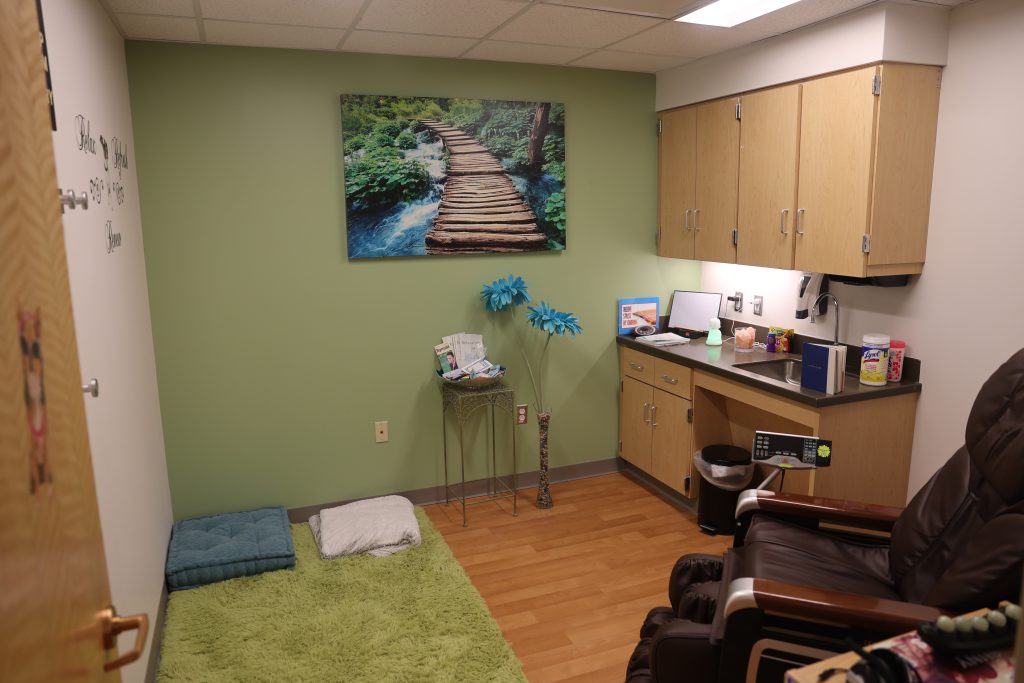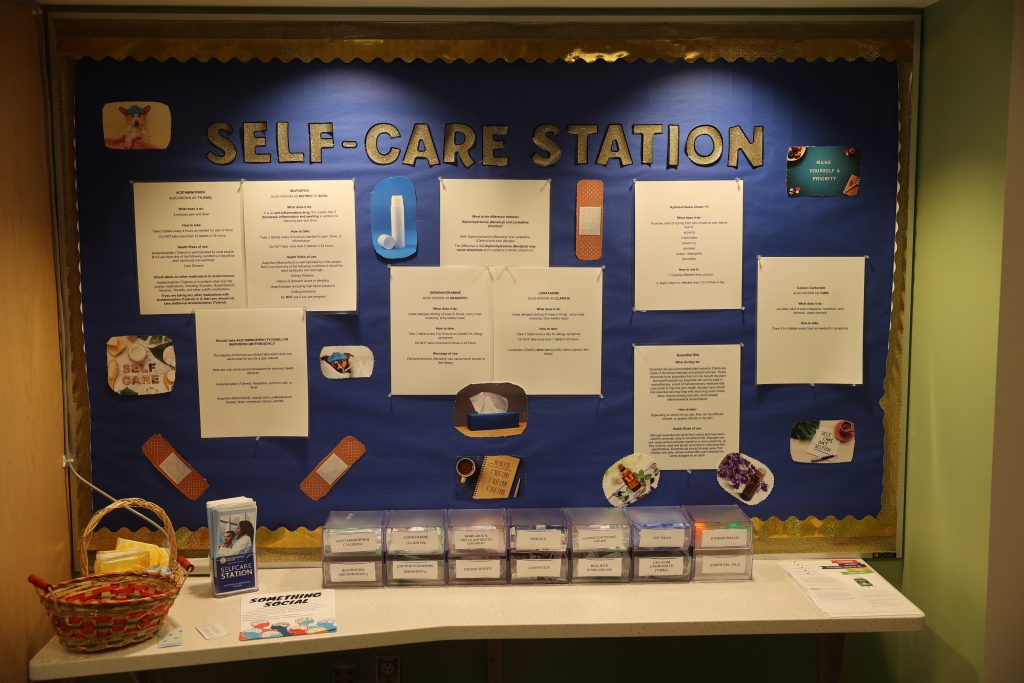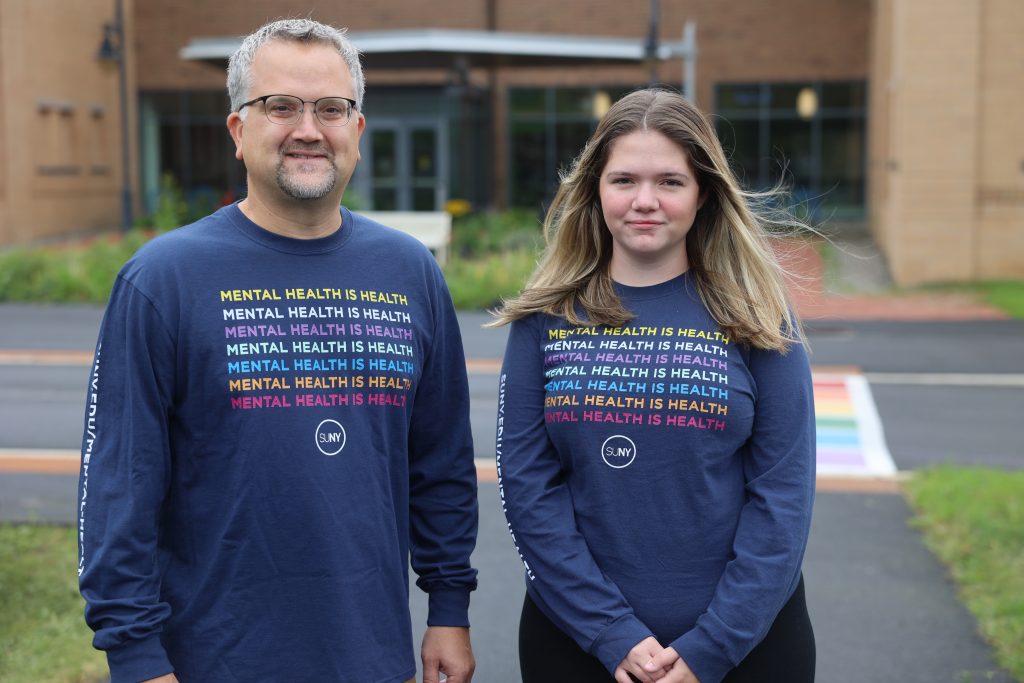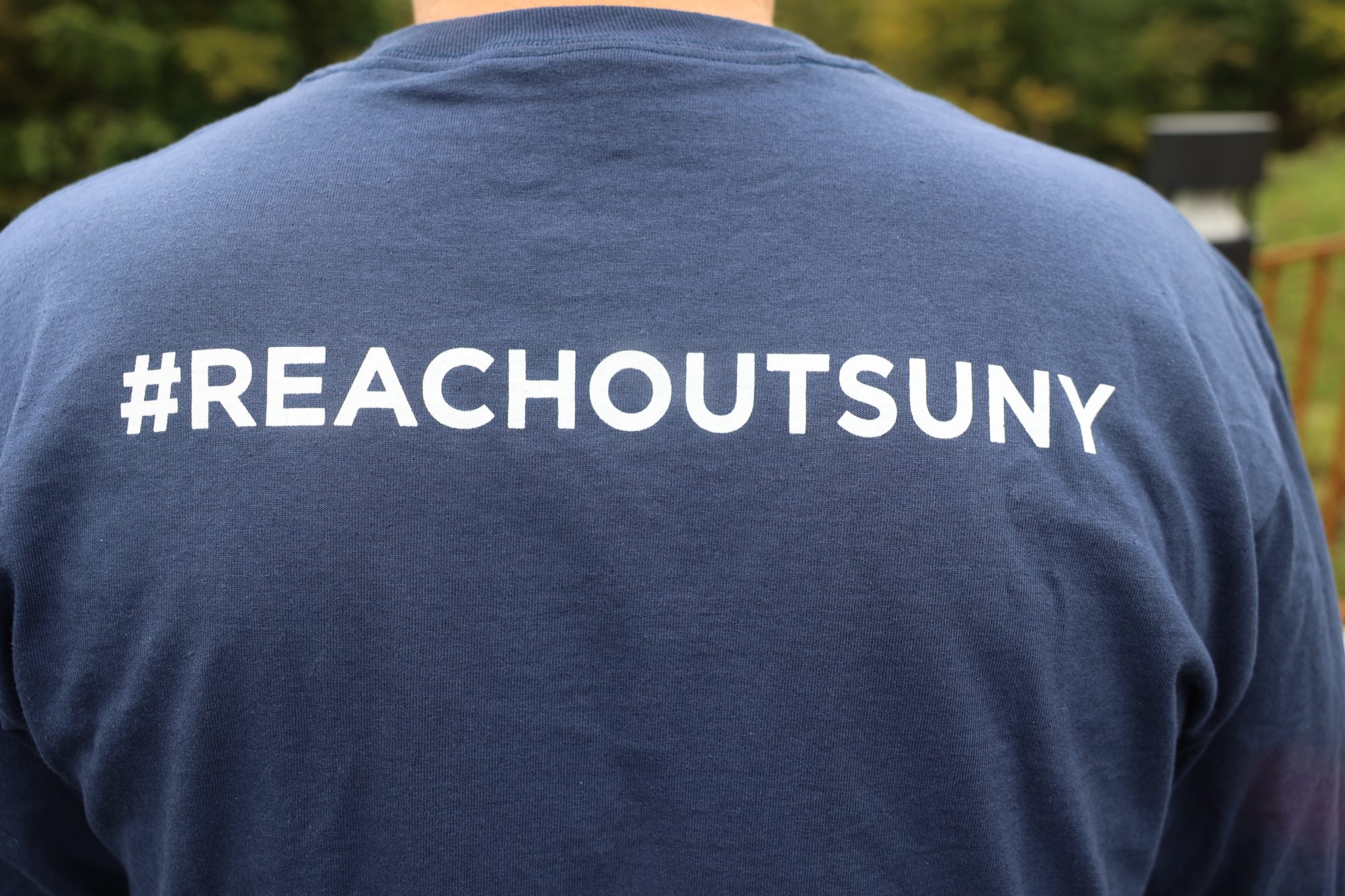Mental health is health. That important message has been shared across SUNY Poly’s campus and throughout the SUNY system, in a united effort to raise awareness during National Suicide Prevention Month.
SUNY Poly students have access to several important mental health services and resources as explained by Director of Wellness Stacey Genther in a recent interview.
The Wellness Center, located on the second floor of Campus Center, has two full-time Mental Health Counselors, Registered Nurses, a Nurse Practitioner, Medical Assistants, a Wellness Promotion Coordinator and part-time Physician. Telehealth and tele-counseling appointments with Wellness Center staff are another option offered. SUNY Poly also has a partnership with Upstate Medical University called the SUNY Telepsychiatry Network (STPN). This program provides remote assessments, short term psychotherapy, medication management and telepsychiatry interventions.

Students can also utilize a relaxation room that offers a massage chair, meditation area, mindful breathing lamp, light therapy, place to journal, color, etc. or schedule a Therapeutic Massage on “Feel Good Fridays.” Appointments can be made by emailing, calling or stopping by the Wellness Center.
All services are covered through students’ health service fee; therefore, they’re available at no additional cost.
Genther stressed that the services offered at the Wellness Center are for all SUNY Poly students (residential, commuter and online).
While appointments are recommended, they do take walk-in visits, including when a student is in crisis. Traditional visits with a SUNY Poly mental health counselor (offered in-person or virtual) typically begin with a consultation appointment. Typical sessions are up to 60 minutes and there are no session limits which means a student can use counseling services as often as deemed clinically appropriate. If it is determined that a student needs a higher level of care and/or medication evaluation, the counselors will make a referral.
Students needs may vary, but providing and/or connecting them with the care they need remains the focus.
“We know that talking to someone helps and this is a confidential environment where focusing on their mental health is very important. [And] we have to think about all areas of personal health and well-being, mental as well as physical,” said Genther. “Our counselors meet with students for a wide range of issues, it could be the adjustment of being a first-year/transfer college student and those transitional issues, maybe feeling a little homesick, or it could be trying to navigate how to live with someone new, a relationship breakup, or a depressive or anxiety disorder. There are so many ways that the counselors can assist students to meet their academic and personal goals.
Genther added that there is a direct correlation between mental and physical health and academic success, as it can impact students’ ability to attend classes, focus, perform on tests, be present and give their all.

While Wellness Center staff remain ready to assist students with their health needs, Genther also encourages faculty, students and staff to take the free QPR Training made available by the SUNY System. Question, Persuade and Refer, or QPR, is an evidence-based emergency mental health intervention for people at risk of suicide. The goal of QPR is to recognize a suicide crisis, interrupt it and direct the person to appropriate care. The course takes only 1-2 hours to complete. For directions on how to take the free training, visit https://www.suny.edu/mental-health/
SUNY Poly also has a Care Team, consisting of trained staff and faculty (not licensed counselors), that address challenging, disruptive, or harmful behavior and situations by providing helpful interventions that are aimed at community safety and student success. The Care Team, which is not subject to confidentiality like the other services mentioned, exists to promote and maintain safety and health by identifying and assisting struggling students to become more connected to services. Some referrals may include mental health care and/or safety intervention and the team makes every effort possible to work discreetly with the students, faculty, staff friends and family that provide referrals.

Additional mental health resources
Materials and information detailing services offered on and off campus are made widely available to students through various channels. Off-campus resources include:
988 Crisis Lifeline: A nationwide service of the 988 Suicide & Crisis Lifeline (formerly known as the National Suicide Prevention Lifeline), connecting individuals with crisis counselors for emotional support and other services via web chat or texting 988.
Mobile Crisis Assessment Team (MCAT): MCAT’S mental health staff provide hope during crises to children and adults in Oneida, Herkimer, Schoharie, Otsego, Delaware and Chenango Counties. MCAT responds to crises where they occur face-to-face, virtually and on the telephone. They operate a local crisis line, the 988 line and a mobile crisis response for the region. Their Team is available 24/7/365 for support to individuals, families and community providers. There is no fee for MCAT services, which is nationally accredited through the American Association of Suicidology.
SUNY Crisis Text Line: Students looking to engage with a trained counselor can find support on SUNY’s Crisis Text Line. The 24/7 service provides a confidential way to reach out when you are experiencing difficult feelings such as loneliness, stress and depression, or having thoughts of suicide. To reach out, simply text GOT5U to 741-741.
